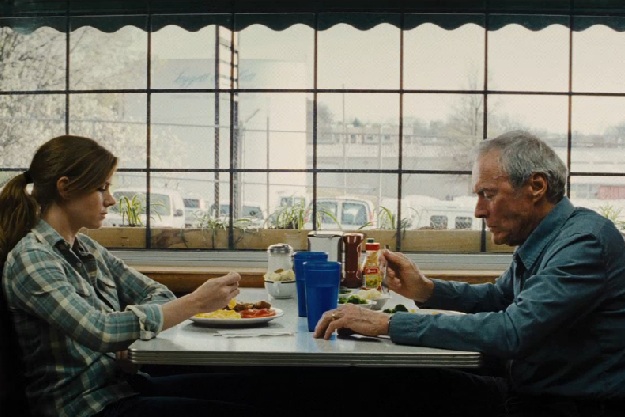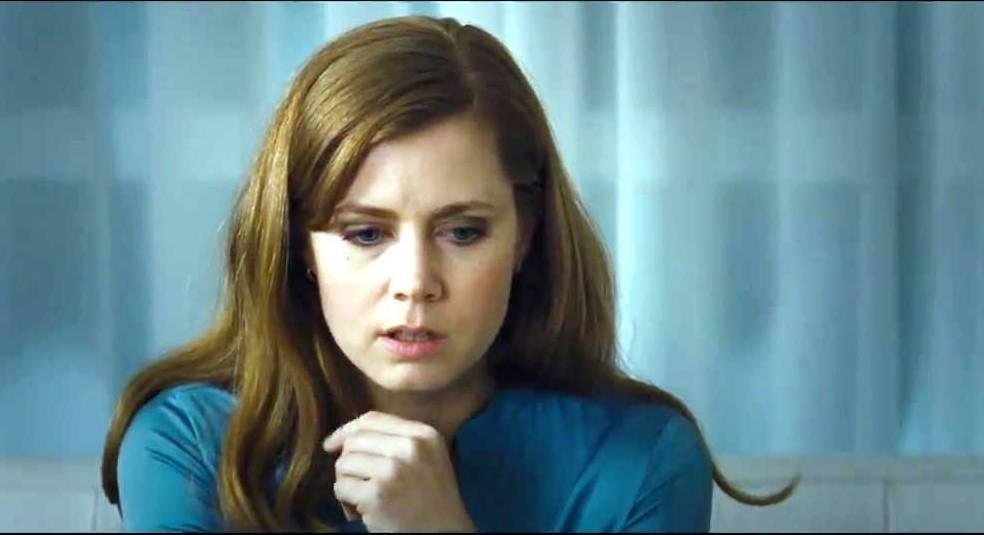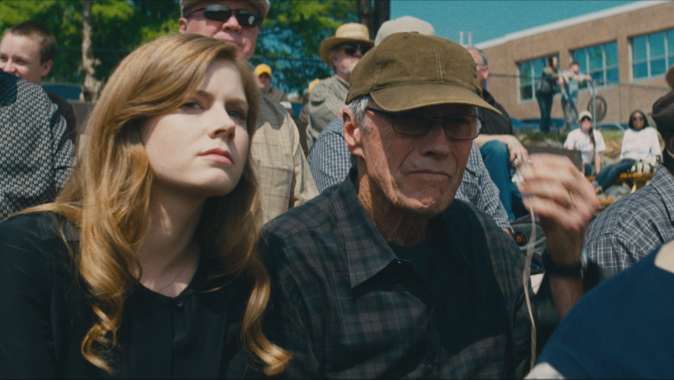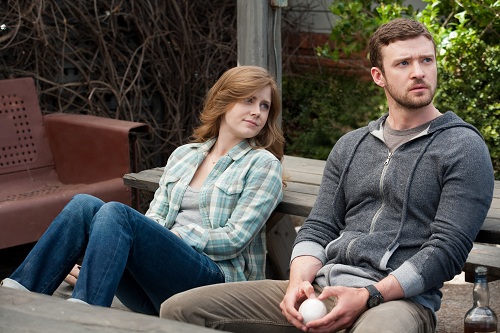|
Ageing
baseball scout Gus (Clint Eastwood) doesn't believe in computers or
statistics.
He enjoys researching the old fashion way by going to games and
watching new
talent firsthand. However, Gus is struggling to take care of himself.
He
doesn't eat well and his eyesight is growing weaker, making it harder
to
observe the matches. With draft selections approaching, Gus's friend
Pete (John
Goodman) is worried about an important scouting trip coming up. He
can't afford
for Gus to make any mistakes with selections so he employs some extra
help. He tries
to persuade Mickey (Amy Adams), Gus's daughter, to go on the trip with
her
father. Mickey lives a very separate life to Gus. She works in a law
firm
surrounded by men and has to work hard for any recognition. However,
she knows
as much about baseball as Gus does and eventually concedes when she
realises
her father's instability. Her relationship with Gus shares a bitter
past, but
she finds relief by coming to know Johnny (Justin Timberlake), a young
scout
who would have been a great player had he not succumbed to injury.

Trouble with the
Curve is
driven by a fantastic creative team, two experienced lead actors and a
rising
star - it's also nothing short of a misfire. The film is courtesy of
Clint
Eastwood's studio Malpaso Productions, but is directed by his assistant
Robert
Lorenz, the second unit director of films like Million
Dollar Baby (2004) and Mystic
River (2003). Positioning itself as a clear alternative to the
sports
science methods of Moneyball (2011), Malpaso
is a fitting word. The name is derived from Malpaso Creek, which means
"bad step" in Spanish. The script by first time screenwriter Randy
Brown would have you believe that modern statistics in sports fall
short of old
school methods, like pure instincts and hands-on research. Did the old
men that
Billy Beane had to contend with come up with this?

I
don't know a lot about baseball, but after watching Rugby League for
seven
years I've learnt something: stats do not lie. A recent article in The
Sydney
Morning Herald described the fallout between the NRL (National Rugby
League) administration
and Sports Data, a company outsourced to organise all of the games
stats and
player statistics. Sports Data is said to hold a very close
relationship with
the games most successful coaches, many of whom use this information to
prepare
for matches as well as recruitment. The article also predicted that
without
these vital statistics, the 2013 season would start in chaos. Why would
any
other sport today, including baseball, be different? What's shown here,
like
listening to the sound of the bat, is an outdated and impractical
fantasy,
argued unpersuasively.

The
charisma of the film's leads adds a little more belief to the
father-daughter
side of the story. Amy Adams' form is first class, blistering with the
same
toughness and grit that Eastwood is best known for himself. They share
great
chemistry together and exchange some wonderfully comic verbal stoushes.
She sarcastically
says at one point in the film: "It must be so rewarding being one of
your
close friends". Although Eastwood is starting to look weary, he can
still
throw down the odd good line or two, like when he comments that his
garage is
shrinking after scratching his car. There are also a couple of scenes
where his
own sense of invulnerability, coupled with his ailing eyesight,
provides some
briefly tense moments.

Yet
it's the script that lets the actors down again because it doesn't know
how to
develop the central relationship. Gus and Mickey fight, watch baseball
together, and fight some more, right until an unmoving revelation is
tacked on
at the end. The lack of drama is compounded by Timberlake's character.
He's
very charming and funny, but if Gus is unconcerned about Johnny
romancing his
daughter, where's the tension? Mickey's relationship with Johnny itself
is also
very old fashioned and overly safe. He's laid-back, she's not, and they
discover they both love baseball and go swimming in a lake together.
Jumping in
that ice-cold water is about as radical as this film ever becomes. With
an
overdose of pleasantness and few dramatic high points, the film becomes
tedious
viewing. Nonetheless, it won't tarnish Clint's legacy too much: it'll
be
forgotten before then.
|